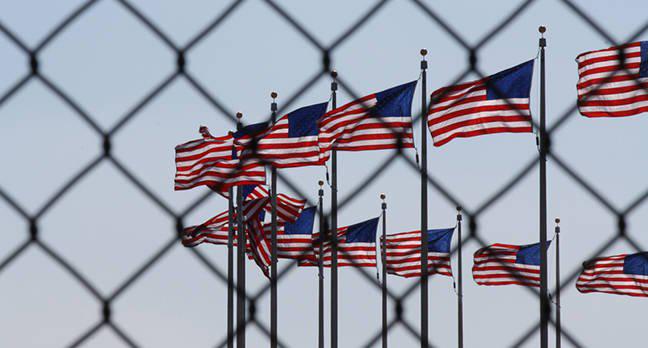Security News

Microsoft reckons government cyber-spies in China, Iran, North Korea, and Turkey are actively exploiting the Log4j 2.x remote-code execution hole. It's interesting this is coming to light as the US government's Cybersecurity and Infrastructure Security Agency tells all federal civilian agencies to take care of CVE-2021-44228 by December 24, 2021.

Eighteen US Democratic lawmakers have asked the Treasury Department and State Department to punish Israel-based spyware maker NSO Group and three other surveillance software firms for enabling human rights abuses. In a letter [PDF] signed by US Senator Ron Wyden, House Intelligence Committee Chairman Adam Schiff, and 16 others, the legislators urge Secretary of the Treasury Janet Yellen and Secretary of State Antony Blinken to apply sanctions to the NSO Group, UAE-based DarkMatter Group, and EU-based Nexa Technologies and Trovicor, under the Global Magnitsky Act.

Ukrainian law enforcement arrested 51 suspects believed to have been selling stolen personal data on hacking forums belonging to hundreds of millions worldwide, including Ukraine, the US, and Europe. "As a result of the operation, about 100 databases of personal data relevant for 2020-2021 were seized," the Cyberpolice Department of the National Police of Ukraine said.

NSO Group's descent into Internet pariah status continues. Its Pegasus spyware was used against nine US State Department employees.

A Canadian man is accused of masterminding ransomware attacks that caused "Damage" to systems belonging to the US state of Alaska. A federal indictment against Matthew Philbert, 31, of Ottawa, was unsealed yesterday, and he was also concurrently charged by the Canadian authorities with a number of other criminal offences at the same time.

US universities are being targeted in multiple phishing attacks designed to impersonate college login portals to steal valuable Office 365 credentials. These campaigns are believed to be conducted by multiple threat actors starting in October 2021, with Proofpoint sharing details on the tactics, techniques, and procedures used in the phishing attacks.

Apple has warned at least nine US Department of State employees that their iPhones have been hacked by unknown attackers using an iOS exploit dubbed ForcedEntry to deploy Pegasus spyware developed by Israeli surveillance firm NSO Group. "On top of the independent investigation, NSO will cooperate with any relevant government authority and present the full information we will have," an NSO spokesperson separately told Motherboard.

The Federal Bureau of Investigation has revealed that the Cuba ransomware gang has compromised the networks of at least 49 organizations from US critical infrastructure sectors. "The FBI has identified, as of early November 2021 that Cuba ransomware actors have compromised at least 49 entities in five critical infrastructure sectors, including but not limited to the financial, government, healthcare, manufacturing, and information technology sectors," the federal law enforcement agency said.

A recently discovered botnet is attacking unpatched AT&T enterprise network edge devices using exploits for a four-year-old critical severity Blind Command Injection security flaw. The botnet, dubbed EwDoor by researchers at Qihoo 360's Network Security Research Lab, targets AT&T customers using EdgeMarc Enterprise Session Border Controller edge devices.

The US Dept of Commerce's Bureau of Industry and Security has added 27 companies to its list of entities prohibited from doing business with the USA on grounds they threaten national security - and one of the firms is associated with HPE's Chinese joint venture H3C. A preliminary announcement [PDF] of the bans lists a company named New H3C Semiconductor Technologies Co., Ltd on the grounds of its "Support of the military modernization of the People's Liberation Army.". The addresses given by Uncle Sam for this semiconductor business matches those listed on the website of H3C, the Chinese company formed as a joint venture between HPE and Tsinghua Unigroup to build networking products.